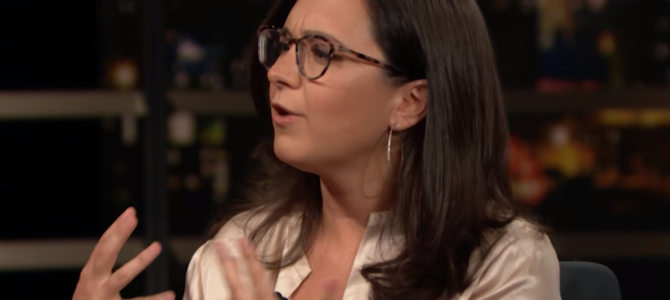Bari Weiss, a writer and opinion editor for the New York Times, resigned from the paper of record Tuesday. She published her resignation letter, citing a “new consensus” at the Times “that truth isn’t a process of collective discovery, but an orthodoxy already known to an enlightened few whose job is to inform everyone else.”
In the letter, posted on her personal website and addressed to A.G. Sulzberger, the publisher of the New York Times, Weiss noted that she was hired in an attempt to diversify voices at the Times. After the 2016 election showed the newspaper “didn’t have a firm grasp of the country it covers,” Weiss — a Jewish, pro-Israel, pro-choice, bisexual writer who was criticized by the Left for questioning the #MeToo movement — joined.
Now, she says, “the lessons that ought to have followed the election — lessons about the importance of understanding other Americans, the necessity of resisting tribalism, and the centrality of the free exchange of ideas to a democratic society — have not been learned” by the New York Times newsroom.
Twitter is not on the masthead of The New York Times. But Twitter has become its ultimate editor. As the ethics and mores of that platform have become those of the paper, the paper itself has increasingly become a kind of performance space. Stories are chosen and told in a way to satisfy the narrowest of audiences, rather than to allow a curious public to read about the world and then draw their own conclusions. I was always taught that journalists were charged with writing the first rough draft of history. Now, history itself is one more ephemeral thing molded to fit the needs of a predetermined narrative.
Weiss also mentions dealing with discrimination, harassment, anti-Semitism, and being called a Nazi and a racist at the Times. “Showing up for work as a centrist at an American newspaper should not require bravery,” she says.
Part of me wishes I could say that my experience was unique. But the truth is that intellectual curiosity—let alone risk-taking—is now a liability at The Times. Why edit something challenging to our readers, or write something bold only to go through the numbing process of making it ideologically kosher, when we can assure ourselves of job security (and clicks) by publishing our 4000th op-ed arguing that Donald Trump is a unique danger to the country and the world? And so self-censorship has become the norm.
She cites the newsroom’s unwillingness to publish ideas and perspectives that might result in controversy or backlash, referring to the New York Times’ apology for publishing an opinion piece from U.S. Senator Tom Cotton.
The paper of record is, more and more, the record of those living in a distant galaxy, one whose concerns are profoundly removed from the lives of most people. This is a galaxy in which, to choose just a few recent examples, the Soviet space program is lauded for its “diversity”; the doxxing of teenagers in the name of justice is condoned; and the worst caste systems in human history includes the United States alongside Nazi Germany.
Weiss was a signatory of the recent “Letter on Justice and Open Debate” published in Harper’s Magazine condemning the increased silencing of free speech by some advocates of cancel culture. In her resignation letter, she said the first rule of the industry for young journalists has become “Speak your mind at your own peril.” Rule Two, she continues, is “Never risk commissioning a story that goes against the narrative.” Rule Three warns to “Never believe an editor or publisher who urges you to go against the grain.”
“Nowadays, standing up for principle at the paper does not win plaudits,” she says. “It puts a target on your back.”
This isn’t the first time Weiss has felt that target. In a 2018 interview with the Federalist Radio Hour, Weiss discussed feeling assaulted by the left for her centrist beliefs. “The group that is really coming after me is the ‘woke left,’” she said. “And when you’re constantly attacked by that group, you sort of naturally focus on it.”
That year, Weiss said that she was called a “racist” and a “ghoul” who “deserved to die” after posting a congratulatory tweet about Asian-American figure skater Misai Nagasu. Weiss posted a video of Nagasu with the caption “Immigrants: we get the job done,” but was quickly vilified for it since Nagasu was born in California (her parents immigrated to the United States).
Weiss has also been criticized for her support of Israel, and her suggestion that there might be “limits” to the idea of “Believe All Women” during the #MeToo movement.
“I’ve always comforted myself with the notion that the best ideas win out,” Weiss concludes her resignation letter. “But ideas cannot win on their own. They need a voice. They need a hearing. Above all, they must be backed by people willing to live by them.”









